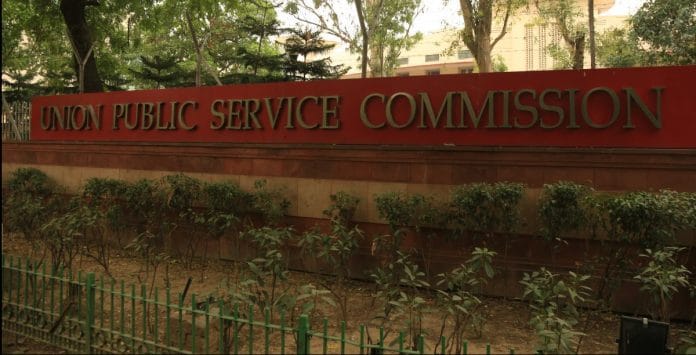New Delhi: The number of IAS officers that states send on central deputation has dropped by nearly 23 per cent since the Modi government first took over in 2014.
According to data available on the civil list of IAS officers, there are just 492 IAS officers on central deputation, down from the 643 officers in 2014. The number was 558 and 514 in 2017 and 2018, respectively — showing a consistent decline in the number of officers coming to Delhi from states under the Modi regime.
Faced with a crunch bureaucratic situation, as it requires over 1,400 IAS officers on central postings, the Modi government has been repeatedly prodding the states to send more IAS officers on deputation — the latest attempt being a communique it sent out on Tuesday.
The states, however, have been reluctant to do so as they are faced by a massive shortage of officers in their own cadres.
The central government also admitted that there is a paucity of IAS officers across the country. In a reply in the Lok Sabha Wednesday, the government said there is a shortage of 1,400 IAS officers in the country.
Government’s latest instruction to states
In yet another bid to tackle the problem of fewer IAS officers coming to the central government on deputation, the Centre has asked all states to ensure they spare more officers for central deputation.
In a communique sent to all state governments Tuesday, the government said that states are failing to send in the number of IAS officers to the central government as stipulated in the Central Deputation Reserve (CDR).
The CDR determines the limit up to which officers could be sent for deputation to the government of India.
“Underutilisation of this reserve, particularly at deputy secretary/director level, causes serious gaps in cadre management,” the Department of Personnel and Training (DoPT) has said in its letter.
Warning defaulting state governments of lesser representation in the higher positions in the central government, the ministry said, “The cadres that have not been forwarding adequate nominations for central staffing scheme at various levels may have to settle for less number of additional senior duty posts in future by way of the corresponding reduction. These aspects have been duly conveyed to the cadre-controlling authorities during the recent meetings taken by the secretary, Department of Personnel and Training.”
Also read: Young IAS officers hail 5 years of Modi govt’s assistant secretary programme
Not the first time
In 2017, the DoPT had written a similar letter to states citing a massive shortage of IAS officers at the director and deputy secretary level. The movement of officers from the All India Services from states to the Centre is crucial for decision-making both at central and state level, the letter had said.
Before that, in 2014, soon after coming to power, the Modi government had pointed out that while states should be sending a total of 1,345 IAS officers on central deputation according to the CDR, there were only 643 in place. Even then, it had said it would require more officers.
As reported by ThePrint last year, some states have particularly been reluctant to send officers on central deputation. For example, out of their quota of 82, 42 and 26 officers to be sent to Delhi, states such as West Bengal, Chhattisgarh and Uttarakhand sent just eight, six and five officers to the Centre.
‘Make central deputation compulsory’
In a bid to tackle the problem, the IAS Association has decided to recommend to the government that central deputation be made compulsory for IAS officers. Sources in the association told ThePrint that a representation in this regard has been prepared and would be shared with the DoPT soon.
“Increasingly, we are observing that the All India character of IAS is being eroded due to multiple reasons,” an officer who is part of the association said. “The declining number of IAS officers manning the posts at the director, deputy secretary and joint secretary level at the Centre is just an example of that… This number is drastically less than what it used to be two decades back.”
In order to fix this, the association believes that it must be made compulsory for each IAS officer to serve in the Centre for a minimum period. “Otherwise the All India Service could become a higher state civil service,” the officer said.
Also read: IAS officers shouldn’t fear us, we’re here only to help, say lateral entrants







Delhi should be a congenial place to work in. Even before winters became a nightmare, due to poor air quality, it has a harsh climate, compared to say Bombay. Maharashtra cadre officers traditionally prefer to serve in the state. However, when officers from states like Orissa and Chhatisgarh disdain Central deputation, introspection is required. Long lunches at Delhi Gym are a cliche. However, expecting mandarins to come in at nine and then stay in office till nine, weekends not respected, Cholbe na. With the long hours people are putting in, we should already have touched four trillion.
Madam Sanya Dinghra, your article was very good article to read. Madam if you could do an article and video on baswan committee setup by UPSC for reforms in civil service exam. It would be great.